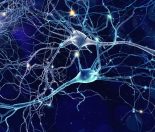Mood Disorders may involve different foods, food allergies and intolerances, heavy metal poisoning, methylation, and brain inflammation.
Food Allergies or Intolerances
It stands to reason that any digestive problem you have will affect the digestion and absorption of nutrients. Abnormally low stomach acid or enzyme levels, “leaky” gut, inflammation in the bowel, parasites, and issues with your pancreas, gallbladder or liver all can contribute in some way to mood disorders indirectly.
Poor protein digestion can lead to amino acid deficiencies which can directly affect the production of neurotransmitters. See how you feel when you are hungry and you eat a meal containing a “first class” protein (meaning it contains all the 9 essential amino acids) like beef or egg, compared with a few sandwiches containing lettuce, tomato and cheese. The first class protein tends to make your brain more “stable”, compared to a meal containing several but not all of the essential amino acids.
If the integrity of the gut is compromised in any way, it may potentially affect our mental health. This makes you sit up and think, doesn’t it? Undigested small proteins or partially digested small proteins, which are often small chains (called peptides) of amino acids can affect your immune system through a complex interaction in your small intestine (leaky gut) and can wreak havoc with your moods. These issues can create all sorts of mood disorders, and depression, anxiety and even aggression have all been linked to food allergies and intolerances. See you naturopath, you may want to consider a food allergy test, particularly checking the antibodies IgE and IgG.
Undigested proteins in these foods are common culprits:
- Cow’s milk
- Soy
- Wheat (gluten)
- Peanuts
- Corn
- Banana
- Beef.
Other possible culprits: Oranges, yeasts, caffeine, chocolate, red wine, MSG, artificial colourings/preservatives, sugars, Aspartame, nightshade vegetables (potatoes, capsicums, tomatoes, chilli, eggplant, tobacco)
Common additives: Caramels (150), Aspartame (951), Tartrazine (102), MSG (621), Sulphur dioxide (220), Erythrosine (127).
Mood Foods
How you think, act, and learn is affected not only by the types of food you eat, but also by how the food is prepared, how and when you eat it, and what foods you eat together. Try to eat foods fresh and in their natural state as much as you can.
Research and experience are proving without a doubt that there is a connection between how we eat and how we think and act. The biochemical basis of food-mood relationship lies in the neurotransmitters, those chemical messengers which we mentioned earlier which relay thoughts and actions along the trillions of neural pathways in the brain. Foods affect neurotransmitter action, and changes in neurotransmitters are responsible for changes in moods. Eat the right foods and you have more of a chance of having a stable mood, and conversely if you make the wrong choices, you can become more unstable emotionally.
Here are some of the top brain building foods I recommend: avocados, berries (any that are fresh), beef (lean), brewer’s yeast, broccoli, brown rice, brussel sprouts, capsicums, chicken, eggs, fresh fish (especially the fatty fishes like mackerel, kahawai, trevally), flaxseed, oatmeal, oranges, peas, salmon, spinach, tomato, turkey, wheat germ.
No brainers – some foods that can adversely affect your moods: alcohol, artificial food colorings, artificial sweeteners, colas and fizzy drinks, corn syrup, high-sugar “drinks”, hydrogenated fats, junk sugars, nicotine, overeating, take-away foods (bad fats), white bread.
Heavy Metal Toxicity
The symptoms of toxic heavy metal poisoning and the symptoms of memory loss — increased allergic reactions, depression, mood swings, irritability, poor concentration, aggressive behaviour, sleep disabilities, fatigue, speech disorders and chronic fatigue — are just some of the many conditions resulting from exposure to these toxins.
For example, mercury found in dental amalgams, the metal most dental fillings are made from, has been found to cause a wide range of mood disorder symptoms. Certain people may be more prone genetically to accumulating such toxins in their bodies than others, depending on their environmental or occupational exposures.
It never ceases to amaze me just how toxic some people really are, and this is one of the reasons why I perform Hair Analysis testing on many new patients. Many times when a test result comes back, the patient can corroborate the findings. One such patient diagnosed with anxiety and depression, was incredibly toxic with lead and arsenic.
I regularly detox children who have been diagnosed with autism or ADHD who are toxic with aluminium, mercury, arsenic or lead. And what a difference it can make to chelate their little bodies. Their teachers, family and friends report back with comments like the child is more calm, more focused and that they actually now have eye contact for the first time.
Have you been working on restoring an old house, or perhaps leadlighting, eating or drinking off lead-glazed pottery inadvertently? One patient was drinking out of a pewter mug, and another was burning firewood which was CCA treated (green tannalised timber contains copper, chromium and arsenic). Another patient from Taranaki (with no amalgam fillings) was eating snapper several times a week and was quite toxic indeed with mercury. The most heavy metal toxic patient I ever saw was a “top dresser” who worked with super phosphate fertiliser for years. This man was loaded with cadmium, lead and arsenic and suffered from too many physical and emotional disorders to mention, as well as having recently been diagnosed with cancer.
Is it any wonder? And the doctors of course were at a loss – they generally don’t look for toxins.
Metals can really wreak havoc with your mind and body over time. If in doubt have a Hair Analysis and then you will know. Your practitioner can assist you and show you different ways to remove the heavy metal toxicity -this is one area where you shouldn’t self prescribe.
Also please bear in mind – if your head hair has been bleached, dyed or permed – submit a pubic hair sample, which is a more reliable way to assess heavy metals in the hair. Pubic hair grows slower and therefore concentrates toxins more so than head hair.
Assessment: Hair Analysis and/or Urinary Challenge Testing Nutritional considerations & detox: see your health care professional
Methylation issues
The term methylation is commonly used in biochemistry. Methylation reactions occur throughout your body, and are necessary for the production of optimal amounts of neurotransmitters. If you are an “under-methylator” you are predisposed to a lower level of serotonin, dopamine, nor-adrenaline and melatonin.
Poor methylators have higher levels of an amino acid called Homocysteine – and because Homocysteine is involved in so many processes in the body, you are more likely to suffer from any one of a number of chronic ailments like Multiple Sclerosis, Parkinson’s Disease, Alzheimer’s and many more chronic degenerative conditions. If you are a under-methylator, you can increase your methylation and have higher, more appropriate levels of serotonin and melatonin. This means you may not have to take Prozac and may even have an improved sleep. I have found a relationship with depression and high Homocysteine levels.
There is plenty of data to support the theory that nutrients help methylation and lower Homocysteine levels. These are the values for the precursors for methylation:
– DMG 43% saw improvement (dimethylglycine)
– Folic acid 44% saw improvement
– B6 & magnesium 46% saw improvement
Mercury toxicity may disrupt this methylation cycle making it practically unsolvable until the metals are removed, so if you have tried to reduce your Homocysteine levels and find they are resistant – check your mercury levels via a Hair Analysis.
Assessment: Blood testing (fasting) for Homocysteine. Hair Analysis if necessary.
Nutritional considerations : Vitamins B6, B12, Folate and Betaine
Inflammatory Mediators
Inflammation in your brain can have a significant effect on normal physiological functioning of your brain. Cytokines are a group of proteins that are used as signaling compounds in your body and brain. These chemical signals are similar to neurotransmitters and are used to allow one cell to communicate with another. These cytokines can affect the production of neurotransmitters in your brain, contributing to neuronal damage and induce damage on multiple levels.
Some symptoms of altered cytokine responses include poor or altered sleep patterns, confusion, apathy, chronic inflammation (high blood CRP levels), anxiety and depression.
Assessment : Blood testing for CRP (C reactive protein). Looking at your history to see if you have any inflammation “smoldering” away in your body – a sure fire sign.
Nutritional considerations : Omega 3 EFAs, Selenium, Zinc, Vitamins A, C & E, Bromelain and Quercetin.
Conclusion
It would pay to get a comprehensive blood test done by your GP or naturopath who has knowledge of blood testing, and I’d also recommend a Hair Analysis done around the same time. These tests can form a good basis for assessment, along with a well taken case history. It really pays to eat foods rich in anti-oxidants when it comes to brain health, and please bear in mind that the right sugars and fats are particularly crucial for maintaining good moods. We did not touch much on exercise, but it is essential in maintaining good brain blood circulation and stable moods. Next we will take a closer look at memory and cognition and factors generally that may contribute to accelerated “brain ageing”.






